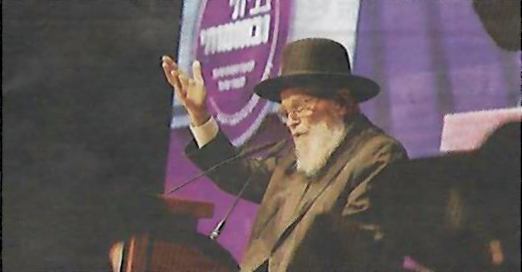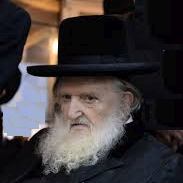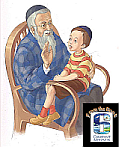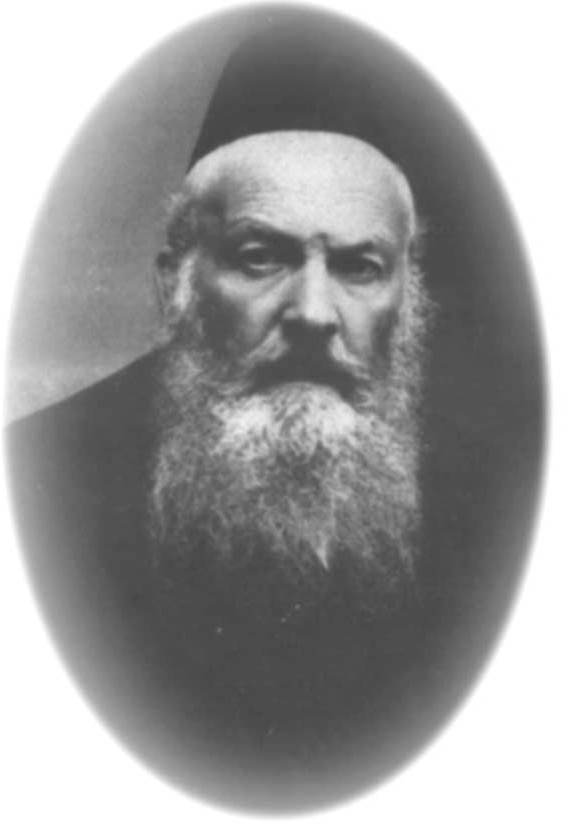  |
|
| |||||||||||||||
|
This Google Custom Search looks only in this website. Guidelines for Girls' Education
Last week the teachers in girls' high schools and seminaries gathered at Binyanei Ha'Uma in Jerusalem to hear Daas Torah about the content and purposes of education. One of the main themes was the importance of remaining within the Bais Yaakov framework and not pursuing education in an institution created and run by regular academic institutions, even if concessions are made to some ways to the chareidi community. Institutions and courses that are supervised and controlled by non-religious staff and institutions are inimical to the chareidi way of life.
At the end of the gathering of educators last week, the leaders issued these guidelines and policies.
We are witnesses to the attempts to inject concepts from the `street' into our camp - through its values, culture and ways of thinking. This also includes a goal and method of introducing academic studies to the chareidi public. To this purpose, educational institutions have been established, calling themselves `chareidi' but they are actually offshoots of secular academic institutions.
The following is a translation of one of the Torah messages that appeared on the parsha sheet of HaRav Moshe Shternbuch for the week of parshas Mattos in Eretz Yisroel.
With regard to the request of the tribes of Reuven and Gad to receive their inheritance on the east bank of the Jordan river it is explained in the parsha that the tribes of Gad and Reuven at first wished to remain on the east bank of the Jordan to enjoy the bounty that was there and that they did not at first agree to fight in Eretz Yisroel to conquer the land. To this Moshe Rabbeinu responded, "Here, you have sinned to Hashem... Should your brothers go out to war and you will stay here?"
The essay was originally published by R' Elchonon to give perspective on the events of his time, and how they were seen and foreseen by chazal. Although it first appeared in Yiddish in 5699-1939, eighty years ago, its message is still fresh and vital.
Part V
"Rejoice not, Israel, with the gladness of the peoples." (Hoshea 9:1) It is not for the Jew to indulge in pleasure in the way the Gentiles do. Gentiles have free time when their work is done and look for amusements and sports with which to pass the time. The Jew has no spare time; after he has finished his work, it remains his duty to occupy himself with the study of the Torah. He who is incapable of studying by himself, must find a Rabbi to teach him. The Jew is also required to dedicate some of his time to the fulfillment of the divine precepts and of good deeds to help others to the best of his ability. The Torah demands such a way of life from the Jew. "Be ye holy" (Vayikra 19:12); the Jew must be holy, his house must be holy, and his whole heart must be holy.
From Our Archives
by HaRav Sholom Schwadron, zt'l
"And if her father prevents her on the day he hears . . . and Hashem will forgive her" (Bamidbor 30:6). Rashi quotes the comment of the Sifrei: "What is the posuk [`and Hashem will forgive her'] referring to? To a woman who took a vow of nezirus and her husband heard and annulled it, and she didn't know and was transgressing her vow, drinking wine and becoming tomei. Such a case requires atonement and pardon, even though the vow had been annulled (and no longer existed). If annulled vows (that were transgressed) need pardoning, how much more so is this true of vows that were not annulled and were transgressed!"
by R' Zvi Zobin
The word `corporal' comes from the Latin word corpus -- body. Corporal punishment is any physical punishment which is on the body of the person being punished. The only non-death corporal punishment mentioned by the Torah is that of malkos, flogging, which was to a maximum of 39 lashes. In addition, Beis Din had the power to administer makos mardus to someone who rebelled against their jurisdiction and these floggings had no maximum number.
To some, the word `smacking' conjures a violent `beating,' yet a smack can be administered with varying degrees of force, or even with no force at all.
Little Shimmy stretches out his grubby chocolaty hands to touch the clean, white tablecloth. You say "No!" with a stern tone. Shimmy looks at you -- and grabs the tablecloth, wiping the chocolate all over the white cotton.
Swiftly, you grab his hand away and give it a little smack and say to him, "I told you `No'!"
Shimmy bursts into tears.
The smack was barely a tap; perhaps softer than a kiss. It was too light to hurt him, so what caused the tears?
EARLIER EDITORIALS
A Mission to Spread
Daas Torah
Looking for the
Best in Yiddishkeit
The Immorality
of Palestinian Combatants and Noncombatants
|
||||||||||||||






